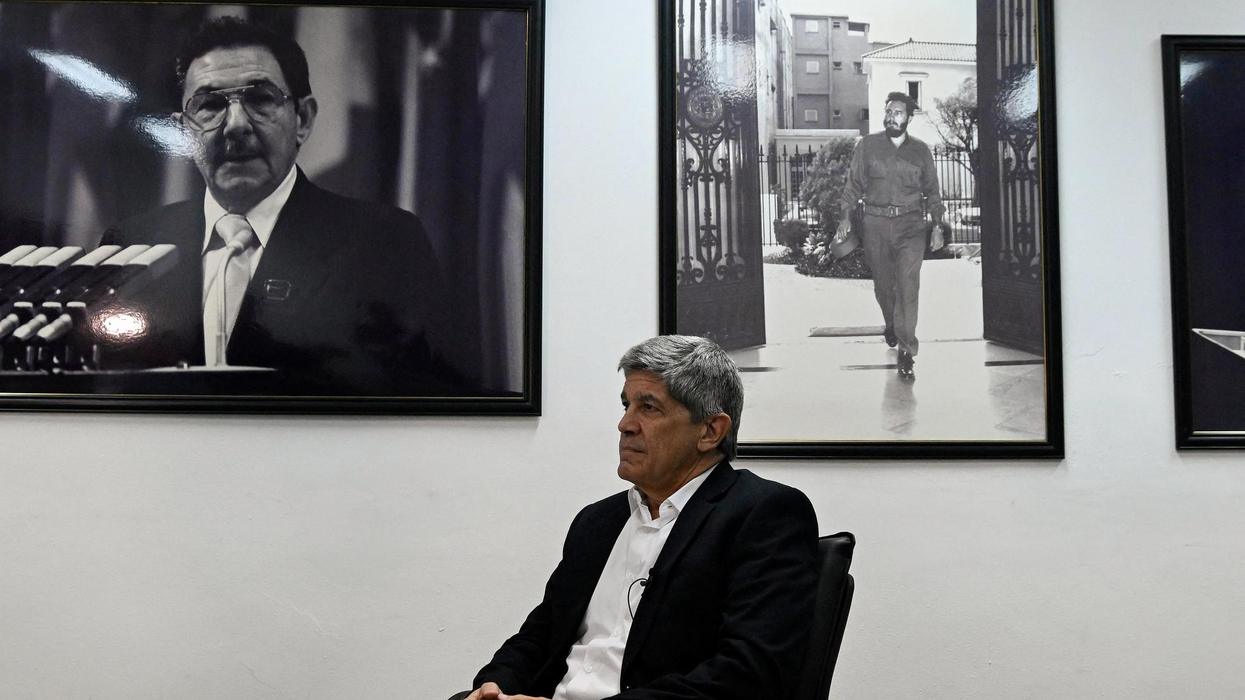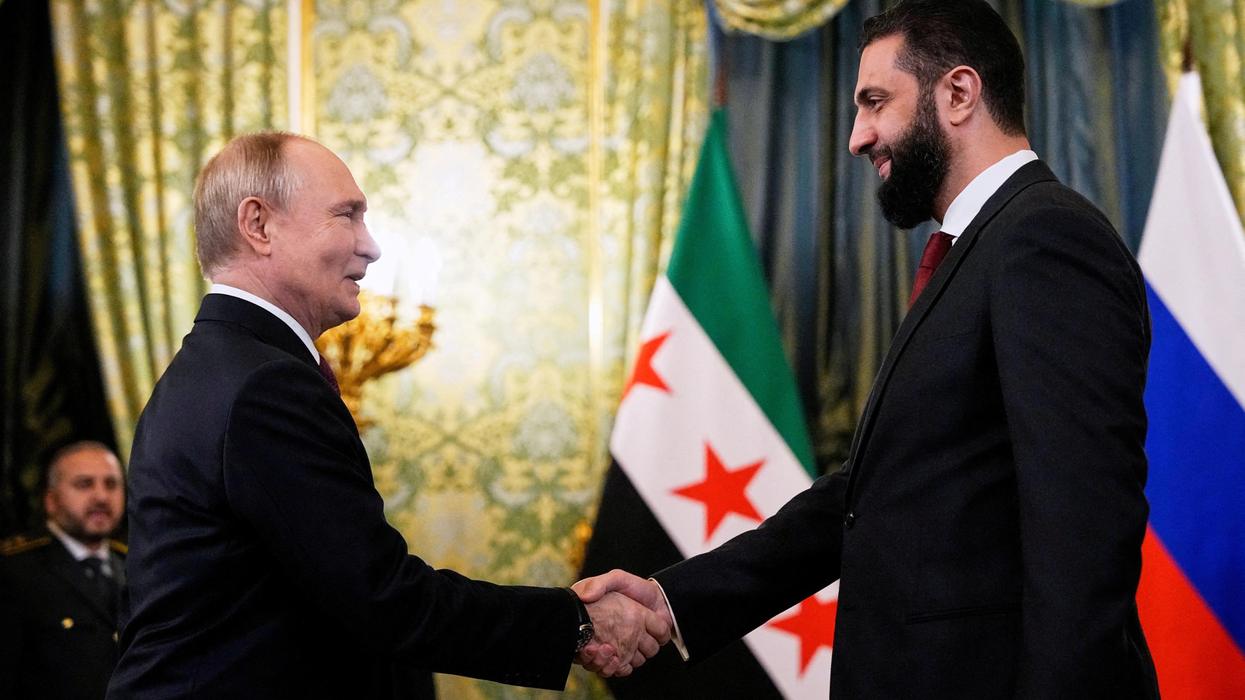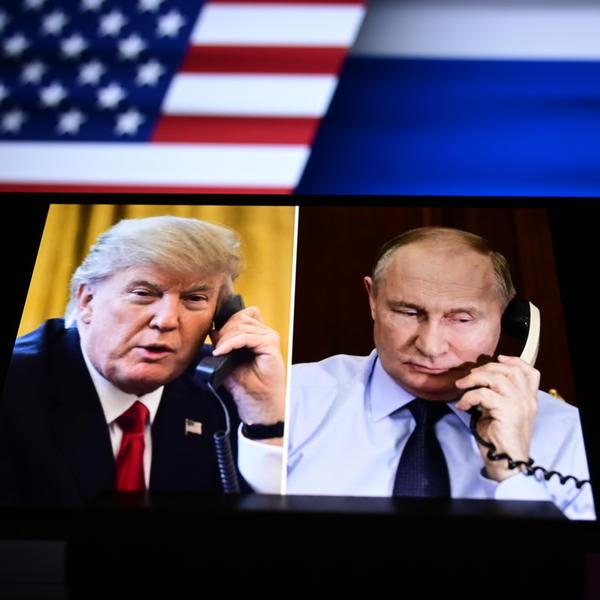At a hastily called press briefing on Wednesday, top U.S. intelligence and law enforcement officials claimed that both Russia and Iran had gained access to personal voter information and that Iran had targeted Democrats in an information operation. According to officials, Iranian actors posed as members of the Proud Boys, a pro-Trump group with ties to white supremacists, and sent threatening emails to Democratic voters telling them to vote for Trump.
Meanwhile, earlier this week, the United States charged six Russians for their roles in a series of damaging cyberattacks that included disruption of Ukraine’s power grid and the hack-and-leak of emails of advisers to Emmanuel Macron’s 2017 presidential campaign. The individuals charged are all members of the GRU, the infamous Russian military intelligence unit that wreaked havoc in the 2016 U.S. election.
This news, and the prospect of more in the future, should come as no surprise. U.S. officials, at least some anyway, have highlighted for some time the fact that Russia is still up to its old tricks, and even increasing its pace since the onset of COVID-19. Analysts who follow mis- and disinformation closely now warn that China has changed its game in light of the pandemic to much more closely resemble that of Russia’s. And, while the details of Iran’s alleged involvement in the Proud Boys hack are still unclear, its actions are not as sophisticated as Russia’s and do represent increased Iranian activity and the continuously growing threat information operations poses.
Foreign policy experts, intelligence analysts, media figures, and government officials are correct to point out the ways in which Russia, China, and Iran, among others, spread misinformation and disinformation within the United States and other democracies to sow confusion and weaken them. This is a threat to democracy. It needs to be remembered, though, that these nefarious actors aren’t the only governments actively undertaking information operations campaigns. All campaigns might not be aimed at hurting American democracy, but that doesn’t mean they aren’t dangerous in their own right. Our new report on information operations from Georgetown University’s Institute for the Study of Diplomacy highlights this issue, among others.
Allies behaving badly
In May 2017, the Qatari state media company, QNA, reported that Emir Tamim bin Hamad al-Thani had given a speech in which he praised “Islamist groups Hamas, Hezbollah and the Muslim Brotherhood,” and even Iran. Text of the speech then appeared on QNA social media accounts. This was big news, as Qatar’s Gulf Cooperation Council allies, especially Saudi Arabia and the United Arab Emirates, are vehemently opposed to groups like Hezbollah, the Muslim Brotherhood, and most assuredly, Iran. But in fact, the speech never even took place. UAE operatives had hacked QNA’s website to post the fake speech. This “non-event” then became the casus belli for Saudi Arabia, the UAE, and seven other nations to sever ties with Qatar and impose a crippling blockade designed, in the words of the Saudi foreign minister, “to bring Qatar to heel.”
Information operations in the region are now big business. Saudis and other Gulf actors have used an Israeli company named NSO Group — which acts as a hired gun well beyond the Middle East — to collect intelligence on individuals and governments and perform information operations. Gulf states have now begun to form their own firms, such as DarkMatter in the UAE.
In June 2019, “an obscure digital marketing company in Cairo began deploying keyboard warriors to a second front: a covert operation to praise Sudan’s military on social media.” This is just one part of a seemingly coordinated effort in the region in support of authoritarian principles. An Egyptian company named New Waves ran this campaign, and Facebook shut down its accounts in August 2019, along with those of an Emirati company named Newave. The New York Times reported at the time that “working in concert, the two companies used money, deception and fake accounts to leverage their audience of almost 14 million Facebook followers, as well as thousands more on Instagram.”
In early 2020, Reuters reported that the FBI was “investigating the role of Israeli spyware vendor NSO Group Technologies in possible hacks on American residents and companies as well as suspected intelligence gathering on governments.” NSO may have even provided the software that the Saudis used to hack Amazon chief and Washington Post owner Jeff Bezos’s phone amid the fallout of the murder of Post columnist Jamal Khashoggi.
More recently, in what was most likely an Emirati-sponsored campaign, op-eds appeared in a number of conservative U.S. media outlets, which “heaped praise on the United Arab Emirates and advocated for a tougher approach to Qatar, Turkey, Iran and its proxy groups in Iraq and Lebanon,” according to reporting by The Daily Beast. In fact, the articles’ supposed authors were actually fake personas with inauthentic avatars, Twitter profiles, and LinkedIn accounts designed to dupe sites into publishing articles that praised the UAE’s stance on regional security issues.
It’s time for awkward conversations
The United States government needs to recalibrate a number of policies and relationships in the Gulf region, and this includes having some difficult discussions with authoritarian allies over their rampant spreading of mis- and disinformation. While our research has not shown any direct involvement by Gulf-nation governments, the Israeli government, or private companies tied to these nations undertaking campaigns aimed at the U.S. election akin to Russia, China, and Iran, their information operations still do harm.
First, flooding the airwaves and internet with more mis- and disinformation further muddies the waters of truth, making it harder for individuals to discern what is real and what is not. This leads people to believe that nothing is true, or that the truth is “unknowable,” which breeds cynicism, apathy, and reluctance to participate in civil society. Second, and most importantly for foreign policy purposes, the emergence of a disinformation growth industry fostered by Gulf countries focusing on Iran and its proxies is a dangerous addition to an already combustible situation. Moreover, it gives hawks in the Gulf countries, Israel, and the United States ammunition regardless of whether it’s false or misleading.
The Institute for the Study of Diplomacy’s new working group report on information operations includes a number of recommendations for governments, the technology sector, civil society, and journalists to mitigate mis- and disinformation campaigns. In regard to U.S. allies in the Gulf, a number of recommendations stand out.
First, and most obvious, the next U.S. administration (whenever that may be) needs to take this issue more seriously, whether it be Russian campaigns against U.S. elections, or Gulf allies spreading disinformation on Iran. We can’t begin to take on this issue in any whole-of-government or whole-of-society (both of which are needed) way without it.
Second, democratic allies need to coordinate more closely on information operations in order to track, respond to, and unmask those who perpetrate them. This means the sharing of best practices, intelligence coordination when possible, and a more systematic coordination effort overall. A more robust partnership focused on the Gulf States and others akin to the European External Action Service’s East StratCom Task Force website EU vs disinfo is one possible step.
Ultimately, the United States government needs to call out and pressure allies when they undertake these operations, or bankroll private sector companies who do so. While this pushback likely won’t include indictments and sanctions like in the Russia case (as long as they don’t target the United States), making arms sales and/or assistance in the ongoing civil war in Yemen more contingent on Gulf allies dialing back information operations would be a step in the right direction.
















